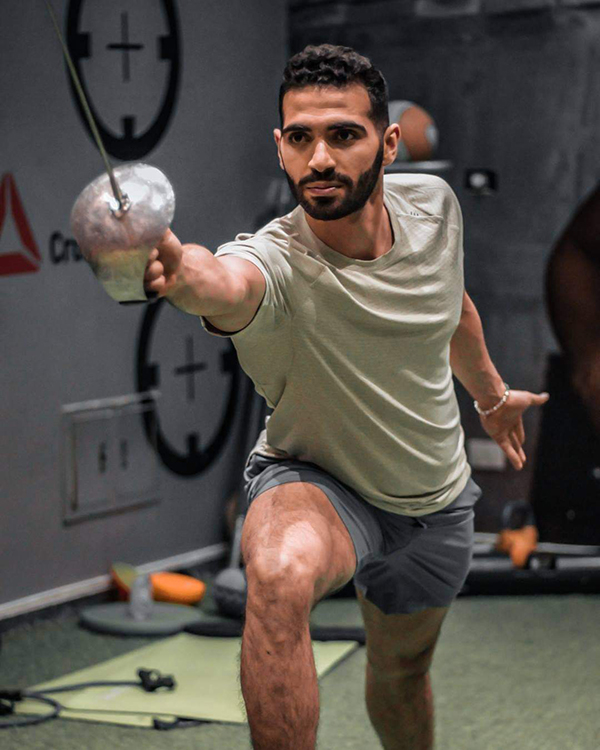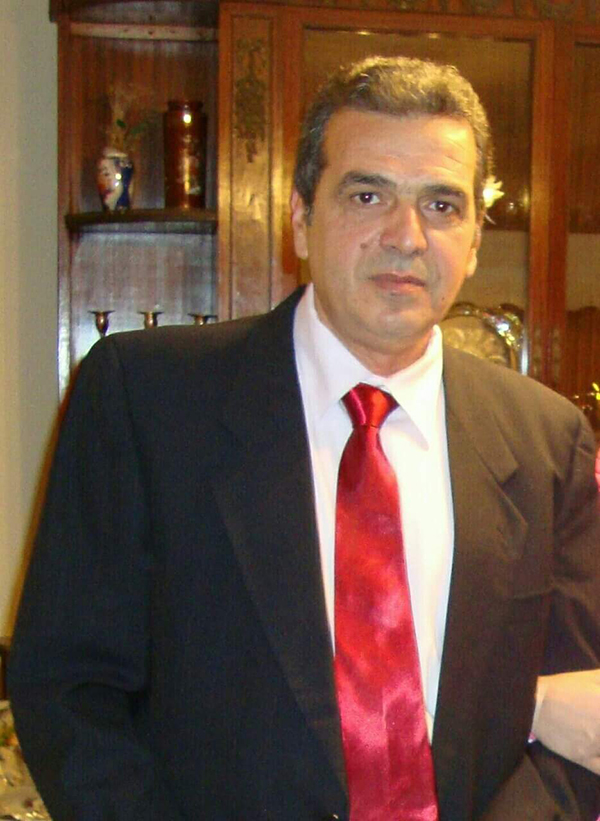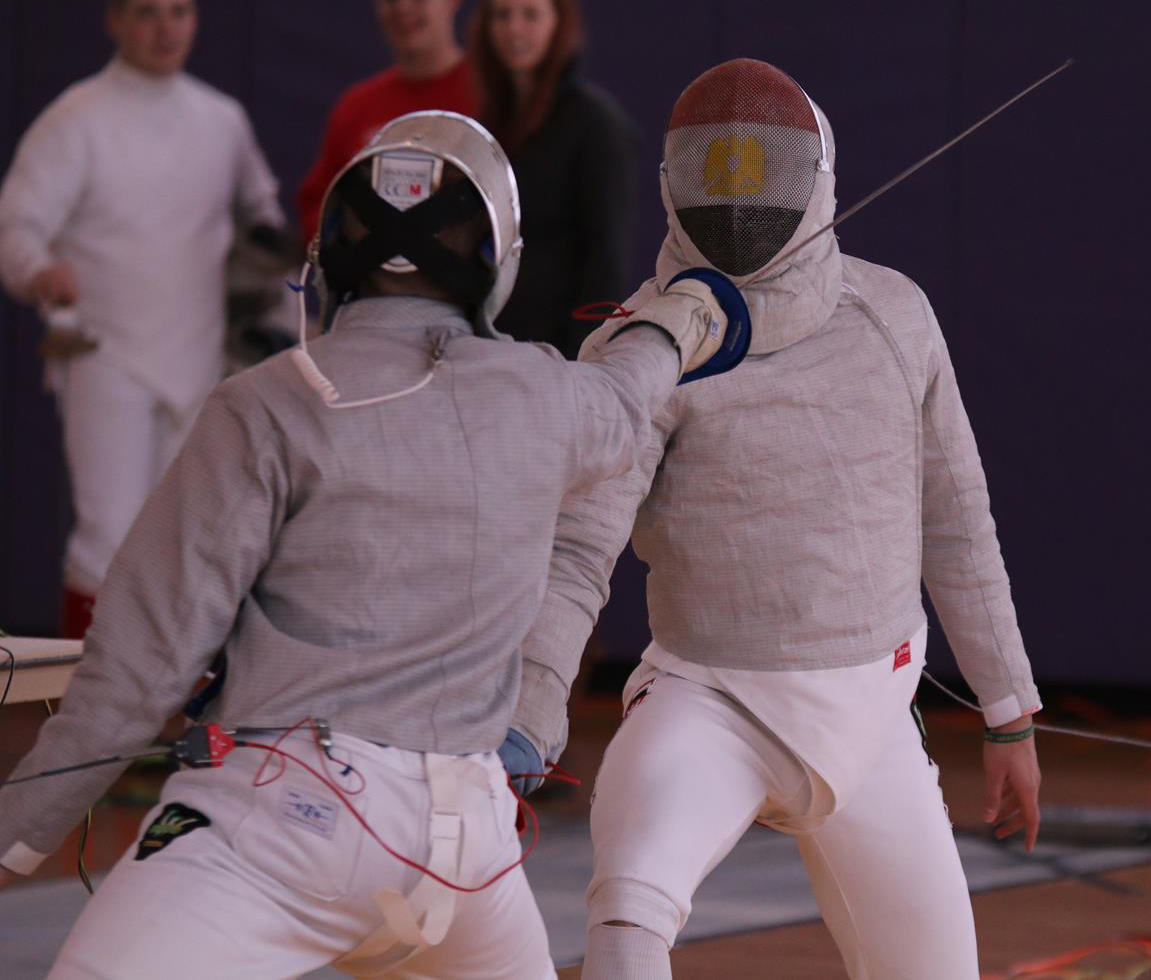Ziad Elsissy thought of one person when he qualified for the Tokyo 2020 Olympics: his father, Aly.
Elsissy, a Wayne State University alumnus fencer, had worked his entire adult life to make it to what many consider the ultimate athletic achievement. But the one person he wanted most to see what he’d accomplished couldn’t be there.

“It was my father’s biggest dream for me before he passed away,” said the 26-year-old Elsissy. “I was very close to my dad. He’s one of the reasons I got into fencing.”
The Olympic drive runs in the blood, so to speak. Elsissy’s father played basketball for the Egyptian national team. Born in Alexandria, Egypt, the junior Elsissy tried his hand on the court, but gravitated toward the sword after his mother suggested he get involved in an individual sport such as fencing. Since then, he’s come a long way.
Elsissy is scheduled to make his first-ever Olympic appearance in Tokyo on July 24 in the Men’s Sabre Individual event. A few days later, he will lead Team Egypt in the sabre competition on July 28 against the host country, Japan.
In addition to his Olympics pursuit, Elsissy’s father was also the impetus for his son’s journey to Wayne State. Elsissy, who graduated in 2018 with a degree in mechanical engineering, is currently pursuing a master’s at WSU. When not training for the Olympics, he also serves as a graduate assistant coach for the fencing program.
But for two weeks in 2014, all of that was up in the air.
‘What’s next?’
As Elsissy neared the end of his high school fencing career, he showed himself to be a worthy competitor as a Junior Olympian for the Egyptian fencing team. He caught the attention of Wayne State fencing coach Jerzy Radz, who reached out about an opportunity to come fence in Detroit.
“My family had a common friend who knew coach Jerzy,” Elsissy said. “My father called him and he said it was a really good school and that coach Jerzy was a really good coach, and he recommended me going there. So, my father took his word and I came here.”
Acclimating to life in a new city — let alone a new country — was not easy.
“I graduated from high school in Egypt and went straight to Wayne State, so it was not a very smooth transition,” Elsissy said. “I was used to being away from home and traveling for fencing competitions and camps. But all of the sudden, you’re changing everything. You're living by yourself, in a different country, where they speak a different language … everything was different.”

It was hard to adapt at first, he said, with a different atmosphere, team and coach. Elsissy became homesick and even received an offer from his father that if he really wasn’t happy, there would be no worries and the first flight ticket home purchased.
Elsissy decided to stay in Detroit and make it work. Less than two months into his freshman year, however, everything changed. While at a fencing competition in Russia, Elsissy was told his grandmother was sick and he needed to return to see her. “But when I got to Egypt, I figured out my dad passed away,” he said.
Devastated and heartbroken, Elsissy dropped off the grid for two weeks, even ignoring emails from his new fencing coach. “He knew I was supposed to be flying for like four days, but then I didn’t come back. He’s trying to reach me and everything was crazy. It was the shock of my life,” Elsissy said.
For two weeks, he contemplated how to pick up the pieces.
“I was thinking to myself every day, ‘Okay, what's next, what's next, what's next? I don't know what's next,’” Elsissy said. “And then I decided, ‘You know what? This is the challenge — I'm going to go to there, get my degree, become an engineer like my dad wanted me to be, and then I'm going to fence with the team. I'm going to make good results, keep my national team ranking and I'm going to get to the Olympics.’ Then I flew to Wayne State and it started from there.”
Elsissy finished his Wayne State fencing career with the most sabre victories — 332 — in program history and was a three-time All-American on the fencing strip. He was also a two-time CoSIDA Academic All-American and was the national runner-up at the NCAA Championships.

“When Ziad first came to the States, his eyes were set on achieving the title of NCAA Champion in the men’s sabre event,” said Radz, who was head of the Wayne State men's and women's fencing programs from 1991 until his retirement last year. “He was keen to do this for himself, his family and friends, and to continue the great historical success that the fencing program has had. His training was very intense and his passion for this sport was very impressive to me. He always communicated to me his dedication to achieving this coveted result.”
Just the fifth head fencing coach for WSU since the program began in 1932, Radz was in his 30th year at WSU when he retired. He’s seen many elite fencers come and go. And he witnessed Elsissy fall short of both missing qualification to the 2016 Rio Olympics and finishing as runner-up again his senior year — just a point shy of the gold medal.
“After this, he pulled me aside and made me a promise he swore he would keep: that one day, he would have the esteemed title of Olympian,” Radz said. “I never doubted him, and it has brought true joy to my heart to see the effort he has put in all these years, and finally be achieving his dream in the sport he loves. I know the entire Warrior community supports me when I say best of luck to him in the Tokyo games.”
‘Everybody had to stay home’
Following graduation, Elsissy’s focus shifted toward competing in the 2020 Olympics. He took some time off from pursuing his master’s at WSU to do it. But as soon those dreams began to look as if they’d come true, COVID-19 and a global pandemic threw everything into a holding pattern.

Elsissy was in the United States for practice for the African Championships — one of the Olympic qualifying competitions — when he received word that all the airports in Egypt were closed. Soon after, the International Olympic Committee made the decision to postpone the Olympics. With the postponement of the African Championships, Elsissy and those involved in the qualifying rounds were left to wonder how this affected their chances.
“All of the sudden, COVID hits the world and everybody had to stay home,” Elsissy said. “At the beginning, with all the gyms closed, I was doing a lot of training activities at home, a lot of home workouts. There was also a lot of mental training, a lot of reading analysis, because at that time we didn't know what the Olympics were going to be.”
He took that time to refresh his mind and, little by little, he and the team went back into training mode. And when people tune into the 2020 Tokyo Olympics to see this Wayne State fencing alumnus compete for his first time, they should also look closely at what’s sown into his fencing uniform.
“If you can see me fence, you will find that little ‘W’ on my electric jacket,” Elsissy said. “I'm really attached to Wayne State. Those years I spent here are the best years of my life. I’m a different human because of them. Coach Jerzy, the Athletic Department, my professors — everything was the perfect thing for me. Wayne State has a big part of my heart.”
Article by Shawn Wright.
